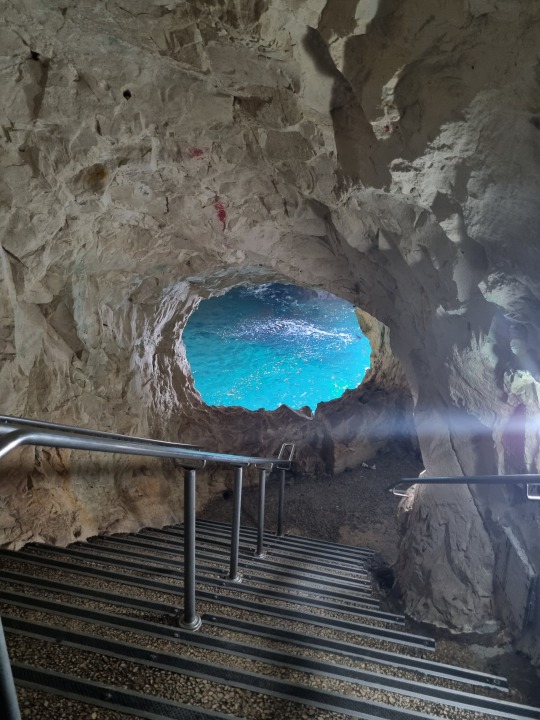#Rosh Hanikra
Photo
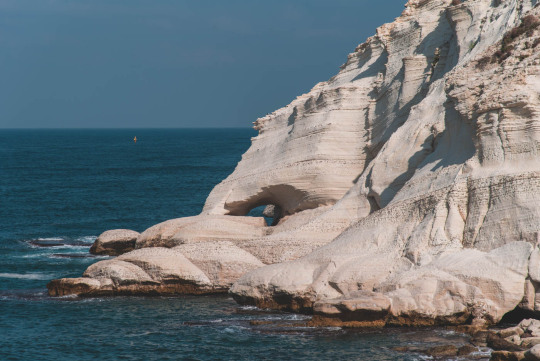
Rosh Hanikra
photographed by Eyal Asaf
source
21 notes
·
View notes
Text
Haifa, Rosh Hanikra, Akko, and Caesarea
A post covering Israel’s north coast, home to its third largest city, Crusader fortifications, a Roman city, and natural beauty on the border with Lebanon. To start with Haifa, Israel’s main port, a bustling place that spreads up the 546m high Mt Carmel, becoming less industrial and more desirable with altitude. By far its most famous sight are the incredible Baha’i Gardens, some of the most…
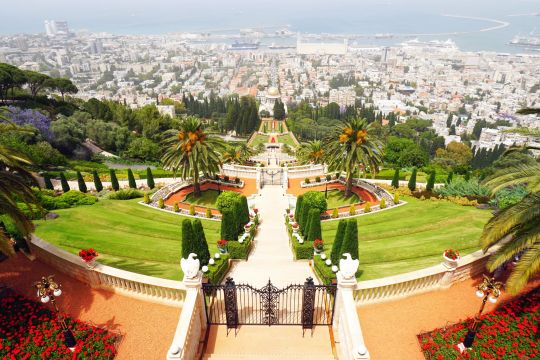
View On WordPress
#Acre#Akko#Al-Jazzar Mosque#Al-Zeituna Mosque#Baha’i Gardens terrace#Caesarea#Haifa#Haifa City hall#HaZikaron Garden#Israel#Knights&039; Halls#Louis Promenade#photography#Rosen Gardens#Rosh Hanikra#travel
0 notes
Text
🔅Tuesday evening - ISRAEL REALTIME - Connecting to Israel in Real Time
🔻ROCKETS - from Lebanon, Hezbollah - Burkan heavy rockets - at Ita a Sha’ev.
🔻ROCKETS - from Lebanon, Hezbollah - Kaytushas (LOTS) - at Rosh HaNikra, Betzek, Hanita, Metzuba, Shlomi, Zarit, Shomera, Arab al Aramshe, Ga’aton, Kill, Shtula, Netua, Alkosh, Matat, Fassuta, Hurfeish
🔻ANTI-TANK MISSILES - from Lebanon, Hezbollah - at IDF post by Malkia, at Arab al Aramsha,
▪️ANALYST WARNING.. due to the Israel attacks at depth in Lebanon, there is a likelihood of a Hezbollah attack at depth in Israel (in the tit-for-tat process). Tevera, Afula, Haifa and surrounds should be on higher alert - know your shelter options wherever you are.
▪️SAUDI SAYS.. Israel’s attack on Baalbek, Lebanon took out Hezbollah’s advanced drone warehouses.
▪️PORTABLE SHELTERS.. seen being deployed in Haifa. Older Haifa does not have in-building shelters.
▪️HOSTAGE DEAL LEAKS.. Qatar: We are far from an agreement.
▪️HOSTAGE MURDERED.. Itai Che, 19, from Netanya, has been determined to have been murdered having been captured by Hamas on Oct. 7. May his family be comforted among the mourners of Zion and Jerusalem, and may G-d avenge his blood! His body remains held by Hamas.
Officially 34 hostages have been murdered, unofficially 59 are known murdered.
▪️GAZA.. massive battle in Deir al Balach, including airstrikes.
▪️COUNTER-TERROR.. battle in Orif, near Shechem. Forces entered Jenin, firefight and explosions, electricity cut to an area, shoulder fired rockets by our forces.
▪️AID VIA SHIP.. Pentagon press briefing: Q: Does the DoD anticipate that Hamas will try to fire on them, on the (JLOTS instant port and pier and aid by ship) operation?
US General Ryder: “Look, I mean, that's certainly a risk, again, but if Hamas truly does care about the Palestinian people, one would hope that this international mission to deliver aid to people who need it would be able to happen unhindered.”
▪️AID VIA AIR.. Another air drop into the ocean by Jordan for Gaza.
▪️YEMEN SAYS.. “military operations will escalate during the month of Ramadan”.
37 notes
·
View notes
Text

Hagai El-Ad is a Jewish Israeli Human Rights and LGBTQ Rights advocate. He has directed the Jerusalem Open House for Pride and Tolerance, The Association for Civil Rights in Israel (ACRI), and until recently B'Tselem בצלם, one of the foremost NGOs documenting human rights abuses in the West Bank. I have long admired his work. This week, he published a column in Haaretz that resonates with me stronger than but a few I've read in the past months. What distinguishes it is its nuanced treatment of history, its complex engagement of the post-colonial paradigm, and overall, its fundamental humanity. It will not make you happy if you ascribe to a straightforward de-colonization discourse. It will not make you happy if you ascribe to the idea that a Jewish state that privileges Jews above others is a historical and moral imperative and a transhistorical moral right. It will not make you happy if you see this land as only Israel. It will not make you happy if you see it as only Palestine. And yet, it also refuses any facile both-sideist kumbaya "why can't we all just get along?" primary colored peace banner. And that's why it resonates with me. It does not prescribe or imagine or envision a solution. It proposes an honest and urgent discursive space that could offer us a starting point in the ashes of an old reality that must be replaced with a new one.
Please read. Every word.
---_——————————————
'Decolonization' of Israel or 'Decisive Defeat' of Palestinians: Are These Our Only Options?
Atrocities are etched into the historical memory of both peoples. Leaders speak in real time about the "destruction of Israel" and of the "2023 Gaza Nakba." How much blood can this Earth absorb before it vomits us all out?
The political philosopher Frantz Fanon wrote that "[t]he settler's feet are never visible, except perhaps in the sea." On the eastern shore of the Mediterranean, Zionist settlers tried very hard to ensure that if footprints were to be left in the sand, it would be of their feet only. Tried and succeeded: After the Nakba, only one Palestinian village remained on the coast, Jisr al-Zarqa. Before 1948, it was possible to walk from Jisr, perhaps in bare feet, a short distance north to al-Tantura, or south to Qisarya. These Palestinian villages, as well as the rest of those on the coast, were destroyed and the large Palestinian coastal cities were emptied – from Acre and Haifa in the north, through Jaffa in the center to Majdal (now Ashkelon) in the south: Majdal, whose last Palestinian inhabitants were deported to Gaza only toward the end of 1950, when the war was long over. Or perhaps, it never was.
Today, one walking north along the coast from Jisr will have to make his way out of Israel/Palestine, through the blocked railway tunnels and the blown-up bridge between them at Rosh Hanikra/Ras al-Naqoura, and continue for about 20 kilometers toward the southern edges of Tyre, in Lebanon, to reach the first Palestinian coastal footprint: the Rashidieh refugee camp. And heading south? He will have to make his way into the Gaza Strip, of course – reaching the northern outskirts of the city of Gaza and the Al-Shati refugee camp: Shati, literally the "beach" camp, whose name indicates not only its location on the Mediterranean coast, but perhaps also bears the memory of lost beaches, those that no longer have villages (except one) and cities by their side, but rather refugee camps, the places where Palestinians will surely "die anywhere, from anything" (Fanon).
Battle tanks, and not only feet, can also leave marks in the sand. Israel captured Rashidieh in the 1982 Lebanon War (in Operation Litani in 1978, the camp was encircled) and occupied it until 1985. Whereas Shati, like the rest of the Gaza Strip, was under direct Israeli occupation from 1967 until the 2005 disengagement, and then went through repeated "rounds" of military operations – and one continuous blockade – all the way until the horrific October of 2023 when the army returned to Shati, as it did to almost the entire northern half of the Strip. What is now left of the camp? In mid-November, Haaretz reported that "[w]hen the APC stops, the hatch opens onto the Shati refugee camp. A look around reveals something that was once a street... After a short journey west, we once again have a view of the Gaza coastline. Its beauty is in stark contrast to the destruction along the entire length of the shore." At a distance of about 120 kilometers, Shati is no longer the first Palestinian community on the coast south of Jisr a-Zarqa. Truth be told, it is not clear when – if at all – it will be again.
In this manner we "replaced" – in Fanon's words – "a certain 'species' of men by another 'species' of men." History shows that when people are "replaced" by others – when colonization is carried out – atrocities are committed. This is not some theoretical, distant insight: In 1948, during that "replacement," we committed atrocities: from Deir Yassin (after the replacement: Jerusalem's Har Nof neighborhood) to Tantura (after the replacement: Moshav Dor and Kibbutz Nahsholim). And as decolonization is "quite simply" the reversal of the above, quite a few people – disgustingly – hold the opinion that the massacres, rape and other horrors of October 7 expressed such a moment of "decolonization" – and therefore are, essentially, justified.
I suppose that it is possible to accept – resignedly or resentfully – a historical fate that embraces a worldview that between the River and the Sea everything, absolutely everything, is a zero-sum game. And that forever it will be exactly so, and if not forever then until – until when exactly? Until the "decolonization" of the Jews, or until the "decisive defeat" of the Palestinians? Either possibility entails a superficial – and cruel – reading of history.
Yes, it is good to read Fanon, hear the echo of his ideas, recognize them in our local context – and to recognize, with a measure less of automatic superficiality, the differences: Palestine is not Algeria, and we are not (speaking of feet) pieds-noirs; "Who can dispute the rights of the Jews to Palestine?" (as Jerusalem Mayor Yousef al-Khalidi wrote in 1899, in a letter delivered to Herzl); Jews came here while "leaning on the British Mandate" (Jabotinsky) but we also came here as refugees while fighting the Mandate; and, above all: No other home awaits us anywhere else in the world. Jews have been walking here, sometimes barefoot, for many a generation. On this land, the seashore is not the only place where our feet are visible.
Of course, not only our feet. Decisive defeat? Operation Yoav (October 1948) resulted, in a short period of time, in the emptying of the southern coastal plain (and the northern Negev/Naqab) of Palestinians, thus doubling the population of the Gaza Strip and transforming it into a place where most people, to this very day, are refugees or their descendants.
Seventy-five years later, and the current Israeli military operation is already emptying another parcel of land of Palestinians: this time, the northern half of the Strip, while doubling the population of the southern half – and who knows if, when and to exactly where Israel will allow them to return. Indeed, it is possible to continue all this. To "fold" even more Palestinians into even less territory – not only in Gaza but everywhere: also in the West Bank and the Galilee, in Jerusalem and in the Negev. To kill even more Palestinians: In 2014 we killed hundreds of children in Gaza, now they number in the thousands. Continue to carry the "violence into the home and into the mind" of Palestinians, and to remind them (and ourselves) again and again, "that the great showdown cannot be put off indefinitely" (Fanon). All this is possible.
And indeed, the current Israeli war plan – as announced almost daily – is, definitely, to continue until "the elimination of Hamas" is completed. With respect to this plan there are those who remind us that Hamas is a Palestinian movement – an idea – and that ideas cannot be destroyed. This is, of course, true, but – and the same people often neglect to mention the following – this insight applies not only to certain ideas that are nationalist or violent, but to ideas in general. Humanistic ideas too cannot be destroyed, even if human beings who hold them as a worldview are killed.
These are dark days for millions of people. Here we are, over 15 million of us, reeling within an unending horror of death and violence. Not a single day goes by without tears. Humanistic ideas may perhaps be indestructible, but are they even relevant in such a reality? Truthfully, they are more relevant than ever – not as a means of indulging in some naive moralism, but because they genuinely express a different moral perspective, desiring of life, at the heart of which is also a measure of sober realism that was formulated as early as 1948, in the Universal Declaration of Human Rights: "Whereas it is essential, if man is not to be compelled to have recourse, as a last resort, to rebellion against tyranny and oppression, that human rights should be protected."
Anyone with eyes in his head knew that reality was heading, God forbid, toward a terrible implosion. This is how B'Tselem, the Israeli human rights organization that I directed until about six months ago, put it in 2017: "The situation wrongly called the status quo ensures one thing, and one thing only: a continued downward spiral into an ever more violent, unjust and hopeless reality. Unless a nonviolent way out of the present situation is found, the violence of the past half century might be just a preview of much worse to come. The effort to achieve a different future here is not only an urgent moral imperative, it is a matter of life and death." B'Tselem repeated these words over and over again, also in May 2021 (during Operation Guardian of the Walls): "A reality that is based on organized violence is not only immoral – it is a danger to us all… We all desire life. For every single one of us."
And no, within this realistic perspective, there is no justification for the atrocities of October 7. Yes, it is possible to engineer a reality rooted in dispossession and oppression, of a regime based on supremacy and violence, and pretend that none of this leads to an implosion – and even blame those who warned of the inevitable outcome as if they were justifying the violence. But this is hypocritical: Warning against the impending abyss is not a priori apologism for the expected crash. Rather, it is an attempt, perhaps a desperate one, to prevent it.
Humans can make choices. Therefore, we have moral responsibility. The Israelis bear responsibility for (among other things) the consequences of the long-standing policy that made it clear to Palestinians that Israel had no intention of granting them freedom or equality, a policy that sought to trample any nonviolent channel through which Palestinians tried to resist their dispossession. Israel is the one that decided that everything – except Palestinian surrender – is "terrorism." Demonstrations? Popular terrorism. The ICC in The Hague? Legal terrorism. The United Nations? Diplomatic terrorism. Sanctions? Economic terrorism. This is a continuous, arrogant, immoral and irresponsible approach, which made it clear every day anew that any attempt at nonviolent resistance was prohibited, and that Israel would act against it by force. The completely predictable outcome of all this was, and continues to be, more violence.
And even though the violent implosion was the ever-approaching abyss that was visible to all, there is a terrible and unequivocal responsibility that is shared by anyone who decided to step beyond the abyss' threshold. This is the Palestinian responsibility (among other things) for torching homes with their occupants still inside, murdering children, raping women, kidnapping families and all the other atrocities of October 7 and since that terrible day. Against such crimes there has always been and will forever be an absolute moral prohibition. The shock, the rage, the unending terrible sadness and the tears that never stop, are the human response to the trampling of the most basic norms. The shock is even more painful when there are those who try to deny the bloody facts, or when there are those who are unable to say simply that this is an atrocity, that this is a crime, that these are absolute prohibitions that have been violated time and again in Be'eri's safe rooms, on the lawns of Kfar Azza, between the houses of Nir Oz, in the fields of Re'im and the streets of Sderot and Ofakim.
The Israeli paradigm, for years now, has been to control the entire area while managing most Palestinians by way of two subcontractors: the Palestinian Authority in the West Bank and Hamas in Gaza. There have long been those who have said that since the establishment of the Oslo regime in the territories, Fatah, the "Movement for the Liberation of Palestine," may still be a movement but that it is certainly no longer doing much liberation. Therefore, the best thing it can do is to rebel against the paradigm and "return the keys" to Israel. At the end of the day, it was actually the other subcontractor, Hamas, which upended the paradigm. As Khalil al-Hayya, a member of Hamas' politburo, told The New York Times, the group's "goal is not to run Gaza and to bring it water and electricity and such... It did not seek to improve the situation in Gaza. This battle is to completely overthrow the situation."
Yes, the old paradigm was rotten to the core. Whoever kicked it did so with appalling cruelty. The price paid in blood is skyrocketing. And now we all live in a post-October 7 world. In Israel it is still not possible to identify all the bodies. In Gaza it is impossible to count all the bodies. Throughout all my years in B'Tselem, I kept in my heart the fear of the day when the horror would overflow, and the so-called conflict would transform into a phase so violent that not all victims could have a name or a grave. We have reached this stage. We live this horror. Deir Yassin and Gush Etzion, Sabra and Shatila, Be'eri and Gaza. Atrocities etched into the historical memory of both peoples. Leaders who speak in real time about the "destruction of Israel" and of the "2023 Gaza Nakba." How much blood can this Earth absorb before it vomits us all out?
We all desire life. For every single one of us.
5 notes
·
View notes
Text
By LAHAV HARKOV, ANNA AHRONHEIM
Published: OCTOBER 6, 2022 12:21
Updated: OCTOBER 6, 2022 21:45
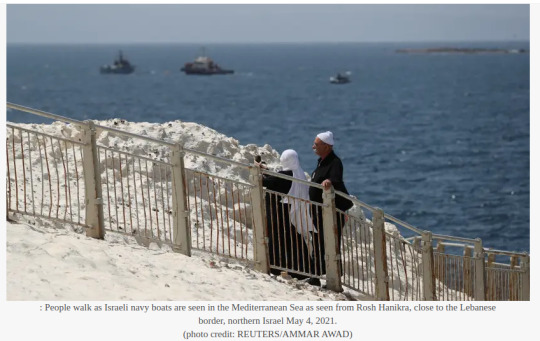
Israel is preparing for a possible confrontation with Hezbollah after rejecting increased demands from Lebanon in maritime border talks on Thursday.
Defense Minister Benny Gantz instructed the defense establishment “to prepare for any scenario in which tensions increase in the northern arena – including defense and offense readiness,” his office said.
The instruction was issued following an assessment of the situation with IDF Chief of Staff Lt.-Gen. Aviv Kohavi and other senior military officers and defense officials.
Shortly afterwards, the Security Cabinet authorized Prime Minister Yair Lapid, Gantz and Alternate Prime Minister Naftali Bennett to take decisions if there were to be an escalation in the North. Gantz warned that Israel will defend its infrastructure regardless of the outcome of negotiations.

“If Hezbollah tries to harm [Israeli infrastructure or sovereignty], the military cost to Lebanon and Hezbollah will be very high,” he said at a memorial ceremony for the fallen of the Yom Kippur War of 1973.
PM Yair Lapid rejects Lebanese counter-proposal
Lapid rejected changes proposed by Lebanon to a maritime border agreement drafted by the US, a senior diplomatic source said on Thursday. The prime minister emphasized to US Energy Envoy Amos Hocstein that Israel would not make any more concessions.
Hochstein’s draft, presented to Israel and Lebanon last week, was meant to be close to the final version of an agreement settling the dispute over the countries’ economic waters. Lebanon submitted its comments on the draft on Tuesday.
Lapid assessed some of the demands to be new and significant, and instructed the negotiating team to reject them.
“Prime Minister Lapid made clear that he will not compromise on Israel’s security and economic interests even if it means there will not be an agreement soon,” the source said.
The source said that one of the Lebanese demands that Lapid rejected was that Total Energy, the French petroleum giant that holds the license to develop the Kana gas field, buy out the portion of the reservoir in Israeli waters, whereas the proposal that Israel agreed to accept stated that Total would pay royalties to Israel for the gas extracted from its waters.
Lebanon refuses to accept 'buoy line'
Exploration has not yet begun in Kana and the amount of gas in the reservoir is unknown so an immediate buyout could fall short of the actual value of the gas in Israeli waters.
Another element that Lapid rejected was Lebanon’s refusal to accept the “buoy line” as a border. The line in question is an obstacle extending 5 km. into the sea from Rosh Hanikra, along the border with Lebanon. The government has argued the line was vulnerable because Israel had established it unilaterally as a zone necessary for it to have freedom of action for its security, and the agreement with Lebanon would enshrine that line in international law.
The “buoy line” is what Lapid’s government has presented as the primary achievement of the negotiations over Israeli security. However, in the ensuing days, Lebanon asked to change the language describing the “buoy line” to avoid accepting it as an international border.
Even as Israel rejects those demands, it “will extract gas from the Karish rig at the moment that it will be possible,” the source stated.
The Security Cabinet, which discussed the latest developments in the talks with Lebanon concurred that progress at Karish should continue as planned.
Karish, an Israeli gas field, is adjacent to Kana, a reservoir that spans Lebanese and Israeli waters, as well as the area in dispute. Energean, which holds the Israeli license for Karish, set up a rig about 70 km off Haifa in June and has worked towards extracting gas, while Iran-backed Lebanese terrorist group Hezbollah threatened to attack if Karish becomes operational.
“If Hezbollah or someone else tries to harm Karish or threaten us, the negotiations on the maritime line will stop immediately and [Hezbollah leader] Hassan Nasrallah will have to explain to the citizens of Lebanon why they don’t have a gas rig and an economic future,” the source added.
The White House said a deal is still possible, despite the disagreements.
“Special Presidential Coordinator Amos Hochstein continues his robust engagement to bring the maritime boundary discussions to a close. We remain in close communication with the Israelis and Lebanese,” a White House National Security Council spokesperson said. “We are at a critical stage in the negotiations and the gaps have narrowed. We remain committed to reaching a resolution and believe a lasting compromise is possible.”
Gantz spoke in favor of a deal earlier Thursday, saying that it harms Iran’s interests.
“We constantly remember the lesson of the Yom Kippur War,” Gantz said. “We must not sin by being arrogant, we must be ready for every scenario… In this context, our biggest immediate operative challenge is on our northern border. These days, the government is promoting an agreement to divide economic waters between us and Lebanon, which has economic and security impact, including harm to Iran and Lebanon’s interests in the region.”
Opposition leader Benjamin Netanyahu, however, continued to say that Lapid had surrendered to Nasrallah, and claimed credit for the prime minister’s rejection of the latest demands.
“Only the heavy pressure that my friends and I put on [Lapid] led him to back off from his surrender agreement, for now,” Netanyahu said. “Israel needs different leadership… We will not let Israel surrender to Nasrallah.”
The opposition leader also repeated his refrain that the agreement would not be legal until it is authorized by the Knesset, and therefore he will not be bound by it if he returns to the Prime Minister’s Office.
However, Israeli law only requires that international agreements be submitted to the Knesset for review, not approval, though historically, agreements involving territorial matters have been brought to the legislature for a vote.
At the Security Cabinet meeting, Interior Minister Ayelet Shaked also called for the Knesset to vote on the agreement.
Hochstein’s draft would have had Israel concede the entire triangle of economic waters that had been in dispute with Lebanon between 2012-2021, up to what is known as line 23, but not the extended triangle that Lebanon demanded in early 2021, known as line 29. It would, however, allow Lebanon to develop the entire Kana Field that extends beyond line 23.
The deal would include international recognition of the “buoys line.”
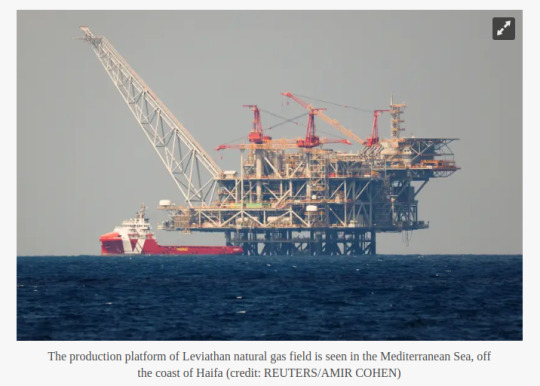
In addition, Israel would receive royalties according to the percentage of the Kana reservoir that lies in its waters, in accordance with a separate deal being negotiated with a gas consortium led by French energy company Total, which has the Lebanese license to extract gas from the field. The deal would allow Total to start work in the gas field as soon as the deal is signed.
Beirut also said it would not accept tying its ability to develop Kana to the agreement with Israel, among other demands, according to Hezbollah news outlet Al-Akhbar.
Netanyahu made his remarks hours after his release from Shaarei Tzedek Hospital in Jerusalem. He went to the hospital the night before after feeling unwell at the end of the Yom Kippur fast; all his tests were found to be normal and he felt better in the morning, his spokesman said.
12 notes
·
View notes
Photo
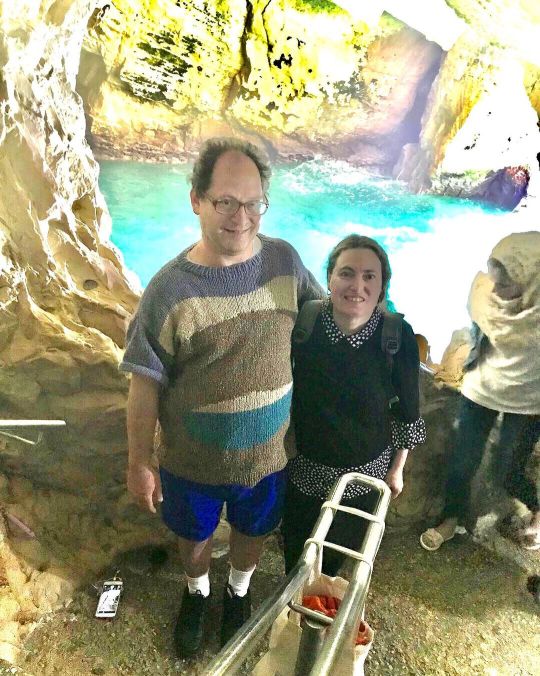
135.) My Rosh Hanikrah Grottoes sweater. First visited this site, the most northern one in Israel, back in 2013. Like so many other places I’ve been to, I thought it would make a perfect sweater. Finally got that accomplished when I visited this place again in April 2019 after knitting the sweater shortly before. #sambarsky #sambarskysweaters #sambarskyknitter #knit #knitting #knitter #art #artist #sweater #intarsia #handknit #roshhanikra #roshhanikraisrael #roshhanikragrottoes #grottoes #israel #cave #cavern #mediterranean #mediterraneansea (at Rosh HaNikra grottoes) https://www.instagram.com/p/Cgibc7NN4da/?igshid=NGJjMDIxMWI=
#sambarsky#sambarskysweaters#sambarskyknitter#knit#knitting#knitter#art#artist#sweater#intarsia#handknit#roshhanikra#roshhanikraisrael#roshhanikragrottoes#grottoes#israel#cave#cavern#mediterranean#mediterraneansea
5 notes
·
View notes
Photo
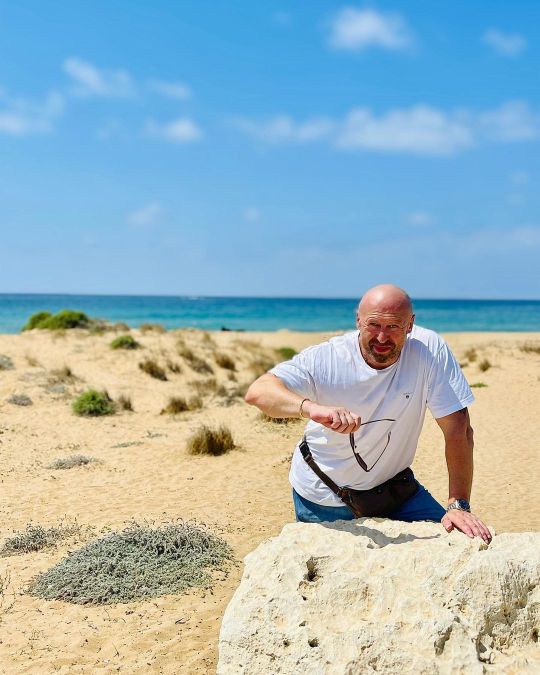
Когда мы окружаем себя хорошими людьми, красивыми вещами и добрыми мыслями, то жизнь начинает меняться в лучшую сторону . . . . #vladtabachnik #психология #психолог #море #солнце #настроение #отдых #всехорошо (at Rosh HaNikra grottoes) https://www.instagram.com/p/CiKEY9LrFmt/?igshid=NGJjMDIxMWI=
3 notes
·
View notes
Link
0 notes
Link
A northern Israeli town and city were struck with Hezbollah rockets on Wednesday, according to the Times of Israel. Rosh Hanikra and Kiryat Shmona were targeted, where sirens reportedly rang all day. No injuries have been reported at this time. Hezbollah reportedly fired 18...
0 notes
Text
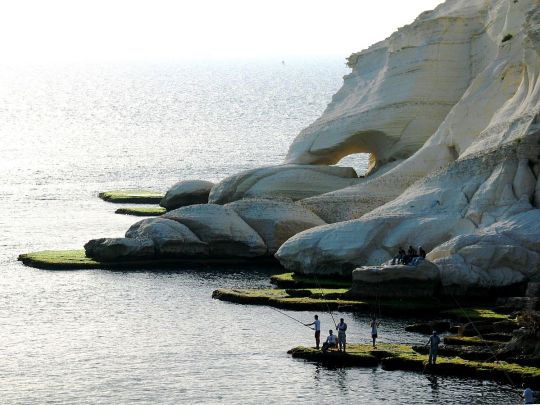
x
9 notes
·
View notes
Photo
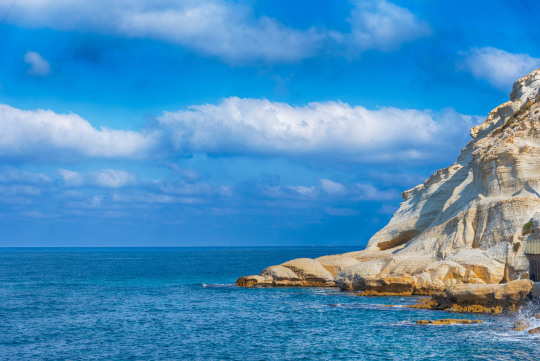
Rosh HaNikra
photographed by Eyal Asaf
source
2 notes
·
View notes
Link
0 notes
Text
FIRST OPERATIONAL INTERCEPTION BY THE "C-DOME" DEFENSE SYSTEM FROM A SA'AR 6-CLASS CORVETTE
Overnight, for the first time ever, an IDF Sa'ar 6-class corvette missile ship successfully intercepted a UAV that had approached from the east and had crossed into the area of the Gulf of Eilat.
IDF troops in the area operated in cooperation with the IAF Aerial Control Unit and the Sa'ar 6-class corvette.
In accordance with the situational assessment since the beginning of the war, IDF missile boats including Sa'ar 6-class corvettes were positioned in the Red Sea.
The Israeli Navy is deployed in the area of the Red Sea and has both the defensive and offensive capabilities to engage with regional threats.
🔅Tue morning - ISRAEL REALTIME - Connecting to Israel in Realtime
🔻ALERTS..
DRONE or CRUISE MISSILE from IRAQ at Eilot, Eilat, Shchoret Industrial Zone - intercepted by Iron Dome on ship, “C-Dome”.
ROCKETS from HEZBOLLAH at Betzet, Rosh HaNikra, Shlomi
▪️EILAT ATTACK.. The Islamic resistance in Iraq used advanced cruise missiles of the Al Arqab type in its latest operations against Israel, a missile with a range of 1000 km.
▪️IRAN DEFENSES UP.. Iran has activated the Zubin SAM system responsible for the defense of the city of Tehran to prepare for Israeli airstrikes.
▪️IRAN PLANS? CNN report: American intelligence estimates that Iran is not likely to attack Israel by itself and predicts that a combined attack of missiles and UAVs is planned to be carried out at the same time by some of Iran's proxies in the region. The estimate is that the attack could to go into effect already this week, and one of the sources was quoted: "They have put all the pieces in place to carry out an attack now. They are just waiting for the right timing."
▪️FAKE NEWS ABOUT US—IRAN.. “Iran has signaled to the US that it may avoid a retaliatory attack on Israel in the event of a ceasefire in Gaza.” - A spokesman for the US State Department denied that such messages were sent from Iran to Washington.
▪️US IN THE RED SEA.. announced that it had destroyed air defense systems and unmanned aerial vehicles in the Yemen Red Sea region.
▪️GREAT INTERCEPTION VIDEOS, DON’T DO THAT! Many great videos of the cruise missile interception in Eilat by people from their hotel rooms and people on the beach. A cool video is not worth the risk to your life - if there is an alert, SHELTER not VIDEO!
▪️GOLAN PLANNED EXPLOSIONS.. Between the hours of 15:30-14:00, explosions will be heard in the areas of Ein Zivan, Ortal and Marom Golan in mine clearing.
▪️HAIFA PLANNED EXPLOSIONS.. Rafael (military industries) Tuesday morning, a planned and controlled experiment will take place on the grounds of the David Institute in Kiryot, during which explosions may be heard. IT’S A TEST.
🟠 CEASEFIRE TALKS..
Hamas - “We will examine the Israeli proposal that does not meet our requirements. We will reply to the brokers when we are done.”
Further to the statement “no ability to release 40 hostages” in the category of women, children, elderly, sick.. several reports added that Hamas straight out said BECAUSE THEY are no longer alive. THE CHILDREN, THE WOMEN.
38 notes
·
View notes
Link
0 notes
Text
Par temps orageux et dans des conditions complexes : documenter l'arrestation d'un suspect qui est passé du Liban à Israël
À la fin de la deuxième fête de Pessah, après 22h00, une unité de contrôle naval de la Marine a identifié un personnage suspect à Rosh Hanikra traversant du Liban vers Israël en escaladant les falaises au-dessus de la mer. L’officier de contrôle naval à Rosh Hanikra, le sergent-major Shir Ashkenazi, a sauté sur le commandant adjoint de la compagnie du bataillon 603 qui tient la ligne dans la…
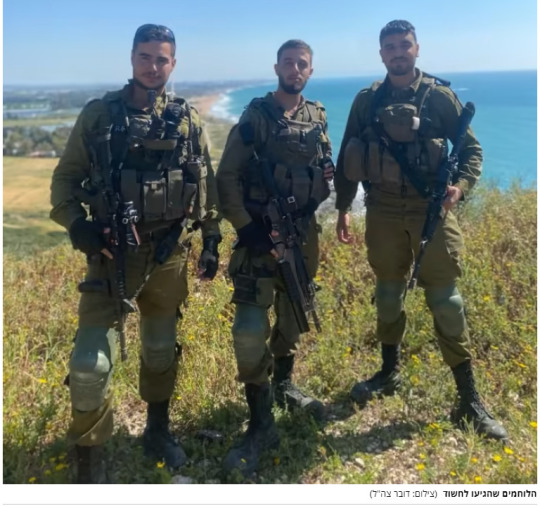
View On WordPress
0 notes
